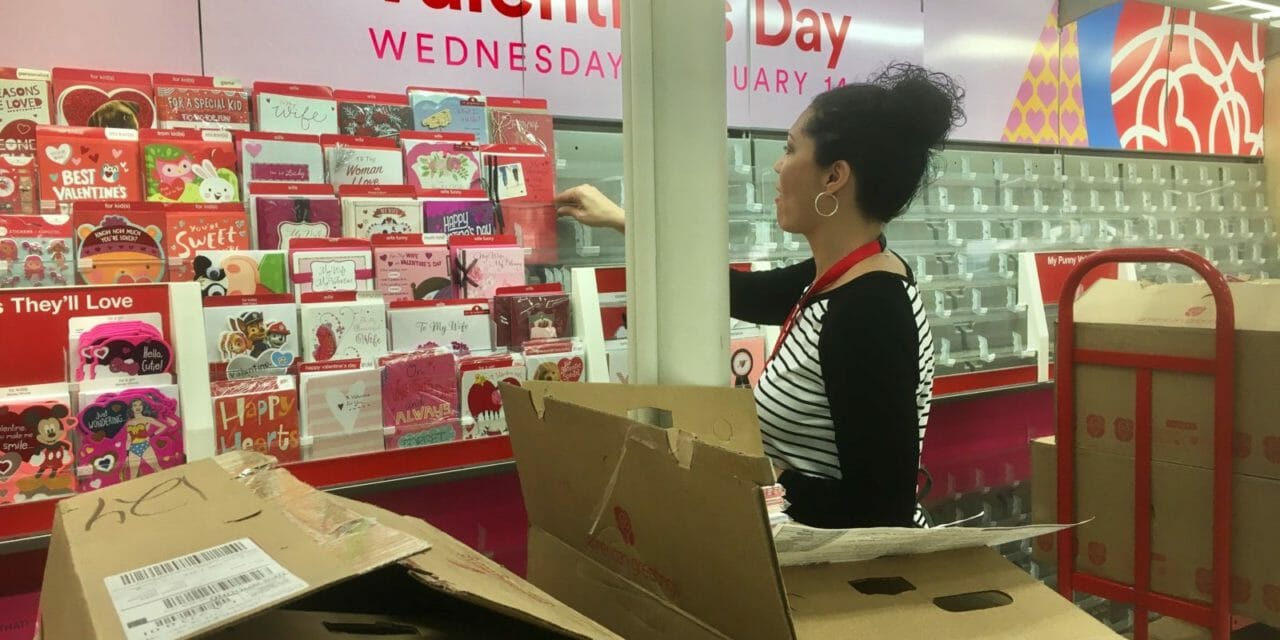How much do you plan to spend on Valentine’s Day, including greeting cards, flowers, chocolates, dinner, drinks and any other trinkets?
Do you think you will spend more or less than $100?
U.S. consumers are expected to spend an average $143.56 on Valentine’s Day as 55 percent of the population celebrates this year, an increase from last year’s $136.57, according to the annual survey released Wednesday by the National Retail Federation and Prosper Insights & Analytics. Total spending is expected to reach $19.6 billion, up from $18.2 billion last year. The numbers are the second-highest in the survey’s 15-year history, topped only by the record $146.84 and $19.7 billion seen in 2016.
“Americans are looking forward to pampering and indulging their loved ones with flowers, candy, dinner and all of the other Valentine’s Day stops,” NRF President and CEO Matthew Shay said in a prepared statement. “With the holidays behind them and the winter months dragging along, consumers are looking for something to celebrate this time of year.”
This year’s survey found consumers plan to spend an average $88.98 on their significant other/spouse ($12.1 billion), $25.29 on other family members such as children or parents ($3.5 billion), $7.26 on children’s classmates/teachers ($991 million), $7.19 on friends ($982 million), $5.50 on pets ($751 million) and $4.79 on co-workers ($654 million). Those 25-34 will be the biggest spenders at an average of $202.76.
Those celebrating Valentine’s Day plan to spend $4.7 billion on jewelry (given by 19 percent), $3.7 billion on an evening out (35 percent), $2 billion on flowers (36 percent), $1.9 billion on clothing (17 percent), $1.5 billion on gift cards/gift certificates (15 percent) and $894 million on greeting cards (46 percent). More consumers plan on purchasing candy this year, with 55 percent (up from 50 percent) saying they will give gifts of candy for a total of $1.8 billion.
“Gifts of experience” such as tickets to a concert or sporting event continue to be popular, sought by 42 percent of consumers, but only 24 percent plan to give one. Those 25-34 are the most likely to give such a gift at 41 percent.
Much the same as last year, consumers plan to shop at department stores (35 percent), discount stores (32 percent), online (29 percent), specialty stores (19 percent), florists (17 percent), and local small businesses (14 percent).
Even those foregoing Valentine’s Day festivities won’t be left out. More than a quarter (27 percent) of consumers who are not observing the holiday have an alternative in mind such as treating themselves in some way or getting together with family and friends.
“Valentine’s Day has become a holiday consumers take advantage of not only to spoil their loved ones but themselves,” Prosper Executive Vice President of Strategy Phil Rist said. “Shoppers should look out for deals on everything from candy to date-night dinner packages in the coming days, leaving plenty of options for those looking to make the occasion truly special.”
The survey, which asked 7,277 consumers about their Valentine’s Day plans, was conducted January 3-10 and has a margin of error of plus or minus 1.1 percentage points. Full data results will not be published on NRF.com but news media and analysts who require additional information can contact press@nrf.com.



![Enrolling Now, Rewarding Careers Ahead [Sponsored]](https://ukenreport.com/wp-content/uploads/2024/04/COD_heroes_1-1385-2-440x264.jpg)



